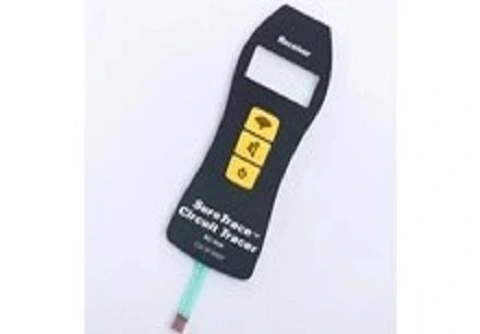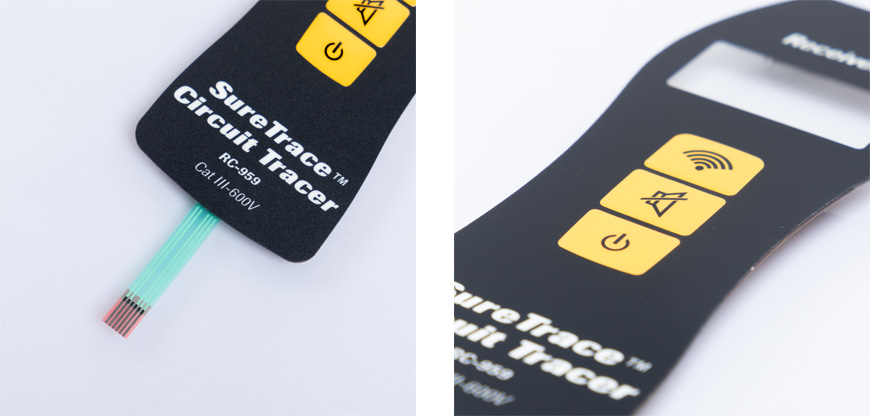
In today's rapidly evolving technological landscape, user interfaces play a crucial role in the functionality and reliability of various electronic devices. One essential component that has gained significant attention is the waterproof membrane switch. These switches are designed to withstand exposure to moisture and provide a seamless user experience. In this comprehensive guide, we will delve into the world of waterproof membrane switches, exploring their features, applications, benefits, and much more.

Waterproof membrane switches are designed to provide highly reliable, durable, and efficient user interfaces, even in the harshest environments. These switches are ideal for applications where exposure to water, dust, chemicals, and other environmental elements can occur. Typically, they are made of multiple layers of flexible, protective materials such as polyester and polycarbonate, which help shield the internal circuitry from moisture and contaminants. The result is a switch that not only offers long-lasting performance but also ensures consistent operation under demanding conditions.
Waterproof membrane switches combine the benefits of a traditional membrane switch (such as low-profile design and flexibility) with the added advantage of water resistance. Their applications are widespread, including use in medical devices, industrial machinery, marine electronics, and consumer electronics, where reliable operation in all types of environments is critical.
Waterproof membrane switches consist of several layers, each serving a specific function to ensure the switch's resilience and effectiveness:
Top Graphic Overlay: This is the topmost layer of the switch, usually made from a durable material like polyester or polycarbonate. The graphic overlay serves two purposes: it provides tactile feedback to users and shields the internal switch components from water, dust, and other environmental factors. The graphic overlay is often printed with labels, icons, and symbols, guiding users to interact with the switch properly.
Spacer Layer: Beneath the graphic overlay, there is a spacer layer that ensures proper alignment and separation between the upper and lower layers of the switch. It features holes that align with the switch points, allowing the conductive traces in the circuit layer to make contact when the switch is pressed.
Circuit Layer: The circuit layer consists of conductive traces that form electrical connections. When pressure is applied to the membrane switch, it causes the conductive traces to touch the underlying contact points, completing the circuit and activating the desired function. This is the core mechanism behind how membrane switches work.
Sealing Layer: To make the membrane switch waterproof, a sealing layer is applied to protect the entire assembly. The sealing layer ensures that no water or contaminants can penetrate the switch, preserving its functionality in environments where moisture is a concern.
Together, these layers create a durable, water-resistant switch that is easy to clean and maintain, while offering smooth user interaction and reliable electrical performance.
Waterproof: As the name suggests, these switches are completely waterproof, making them ideal for applications where exposure to moisture is a concern.
Durable: Waterproof membrane switches are highly resistant to wear and tear, ensuring a long lifespan for your electronic devices.
Customizable: They can be tailored to suit specific design requirements, with options for custom graphics and backlighting.
Cost-Effective: These switches are often more cost-effective than traditional mechanical switches.
In the medical field, waterproof membrane switches are widely used in devices such as patient monitors, infusion pumps, diagnostic equipment, and medical control panels. These switches need to be easy to clean, resistant to contaminants, and capable of functioning in a sterile environment. Waterproof membrane switches meet these needs by offering protection against fluids and ensuring that medical personnel can operate equipment smoothly without worrying about water damage.
Industrial settings often expose equipment to challenging conditions such as water, oils, and dust. Waterproof membrane switches are used in control panels for manufacturing machinery, factory equipment, and other industrial systems. These switches ensure that operators can control equipment in environments where water and other environmental factors are present, such as wet work areas, production lines, or outdoor installations.
Waterproof membrane switches are crucial in the marine industry, where they are used in devices like boat navigation systems, communication equipment, and control panels on ships. Marine environments are subject to high moisture levels, and these switches ensure reliable performance even when exposed to saltwater and high humidity. The switches also resist corrosion, which is a significant concern in marine electronics.
In automotive applications, waterproof membrane switches are used in dashboards, climate control systems, infotainment systems, and outdoor vehicle controls. These switches can handle exposure to rain, moisture, and dirt, providing reliable operation even in adverse weather conditions. As automotive technology continues to advance, these waterproof switches help enhance user interfaces in both traditional vehicles and electric vehicles (EVs).
Waterproof membrane switches are also finding their place in consumer electronics such as waterproof speakers, portable devices, smart home systems, and wearables. As consumers demand more durable and reliable products, these switches enable manufacturers to create electronics that are resistant to water, dust, and other environmental elements, ensuring a better user experience.
The future of waterproof membrane switches is bright, with continuous advancements in materials, design, and functionality. Here are some key trends to watch for in the coming years:
As the demand for waterproof membrane switches increases, the materials used in their construction will continue to evolve. New, stronger, and more flexible materials will emerge, offering even better protection against water, chemicals, and harsh environments. Materials that are both lightweight and more resistant to wear and tear will also help improve the longevity of membrane switches in tough conditions.
Waterproof membrane switches are increasingly being integrated with touchscreen interfaces to create more versatile user interfaces. These hybrid designs can offer both tactile feedback from membrane switches and the ease of use of a touchscreen. The combination of both technologies could provide users with a richer, more intuitive experience while maintaining the water-resistant and durable characteristics of the membrane switch.
The future of waterproof membrane switches will likely see even greater customization options, allowing manufacturers to tailor the switches to specific applications. Custom shapes, sizes, graphic overlays, and backlighting options will allow for more specialized, user-friendly designs. This will be particularly beneficial for industries like automotive, medical, and consumer electronics, where aesthetics and functionality are key.
Q: Are waterproof membrane switches suitable for outdoor applications?
A: Yes, waterproof membrane switches are an excellent choice for outdoor applications as they are designed to withstand exposure to moisture and environmental elements.
Q: Can I customize the appearance of a waterproof membrane switch?
A: Absolutely! These switches can be customized with graphics, backlighting, and tactile feedback to meet your specific design requirements.
Q: How do I clean and maintain waterproof membrane switches?
A: Cleaning is simple – use a mild detergent and a soft cloth. Regular maintenance ensures optimal performance and longevity.
Q: Are waterproof membrane switches more expensive than traditional switches?
A: While the initial cost may be similar, waterproof membrane switches offer cost-effectiveness in the long run due to their durability and reduced need for replacements.
Q: What industries benefit most from waterproof membrane switches?
A: Waterproof membrane switches are used in various industries, including medical, industrial, marine, automotive, and consumer electronics, where reliability and durability are paramount.